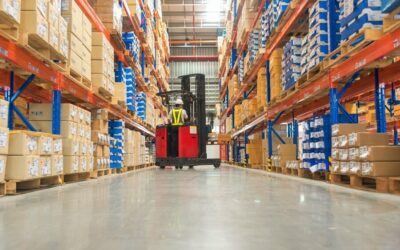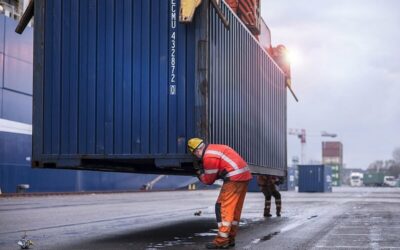What Are The Standard Logistics Charges at The Time of Import
With globalization, the world is more connected than ever. Goods of all types are transported from one place to another on a daily basis all across the world. But these logistics activities are not at all simple as they seem. The first and the foremost thing to realize is that the term ‘Logistics’ does not just simply refer to transportation.
Table of Contents
Logistics Activities:
Along with the transportation and transfer of the goods, there are a lot more activities and functions involved in the process of logistics. And these activities and functions vary in their complexities. To make the complicated process easy, the freight forwarding companies including the ocean freight forwarders and land freight forwarders perform these functions for other companies. Shipment, packaging, paperwork, etc all can be well handled by these companies.
Logistics Charges at The Time of Import:
Along with all the paperwork, there are a number of expenses that need to be cleared in the logistics procedure. Both at the time of import and export, some payments need to be made to clear the shipment.
Types of Charges:
Mainly, the types of charges can be categorized into three big groups. The logistics charges at the time of imports have to be paid to
- Customs Authorities
- Freight Forwarder or Custom Broker
- Air or Ocean Carriers
Import Charges:
The customs authorities are responsible for checking and confirming that the goods coming in the country are in accordance with the laws of that country with respect to
- Health
- Safety
- IP laws
What are They?
Import duties are also known as customs duties, import tariffs or tax are imposed by any country’s custom and government authorities. They are the taxes charged on the import goods.
Also Read: What Is Fuel Surcharge? | Everything You Need To Know
Factors Affecting Import Charges:
The custom duties vary from one country to another. There are a number of factors impacting the import duty including
- Value of the good
- Shipping option
- Shipment
- Laws of the countries you are importing the goods to
Some of the import charges are discussed below:
DDU:
Deliver Duty Unpaid are the payments that need to be paid the beneficiary of the shipment to the customs authorities. The payment of this fee is necessary to clear the shipment.
FOB Destination, Freight Charges:
As the title of goods is passed to the consignee when the freight reaches the dock, the buyer has to pay all the freight charges mentioned on the receipt, at the time of import.
Port Security:
The port security is applied per container and the amount is set worldwide according to the international ISP’s code to improve the security of ships and the port offices.
VAT:
The carrier pays these taxes to the local authorities and the cost is then deducted from the customer’s account.
Electronic Cargo Release Service:
Also known as ‘Telex-release’, this permits the freight to be discharged at destination if the identity of the collector is confirmed, provided that the 3 unique Bill of Ladings have been produced by the consignee.
Penalties:
Heavy fines and penalties are charged if any customs law is breached for fraud, mislabeled cargo, etc which has to be paid to the customs authorities.
Charges Paid to The Freight Forwarders:
Freight forwarders who are defined as the experts of the logistics and who manage the physical movement of the goods and products. They have expertise in
- Freight costs
- Port charges
- Costs of any special document
- Insurance costs
- Terminal fees handling
They focus on the supply chain working and, handle and monitor the transportation of the shipment and cargo from one place to another. They tie all the loose ends of the supply chain that need to be coordinated.
Basic Service Rate Additional
This is the charge imposed by transportation organizations to receivers for LCL payload, including
- the port fees
- for moving the goods for unpacking, storage, and arrangement
- Stacking the goods onto a vehicle to move the products to the receiver.
Peak Season Charges:
This charge stays basically for a certain span of Peak Season. This is an occasional expense applied during high volume transporting time periods in specific businesses. The expense is pertinent to all shipments that move in these exchanges during the high volume time frames.
Rates for Extra Services:
The rates for any port isn’t accommodated in the usual method of dealing with receiver for
- Repacking
- Gauging
- Fixing
- Organizing
ISF Filing Fee:
Often a part of the customs clearance fee, ISF filing is charged for ocean freight only for filing in accordance with the advance cargo reporting requirement.
Custom Clearance Fee:
The fee is to be paid to the freight forwarder or customs broker for the customs clearance and different filings.
Charges Paid To the Carriers:
A freight carrier is an individual or a business organization that is lawfully approved and has practical experience in moving freight from one point to another.
Change of Destination Service:
This is charged per container if there is an alteration in the transit by the carrier upon the clients’ request to change the target port before the freight reaches the earlier mentioned point. However, these services do not include
- Bring shipment back,
- To export again,
- Inland change demand,
- Expanding inland Import process
Demurrage and Detention:
Demurrage is charged to the receiver if the container has been held up at the port for more than the agreed time period i.e. after the free time. Whereas, detention fee is charged for the excess usage of the container and failure to return it in the time period that has been agreed upon by the trading parties.
Freight Collection Charges:
These expenses are applied when the carrier:
- Charges cargo fees locally,
- Charges cargo fees in a local currency
This fee is applied both to the importers and exporters. As the charges are decided upon by the local authorities so they vary from one place to another.
Pick and Drop off Charges:
This is charged upon the request of the customer for the service given by the carrier to permit the pick and drop-off of empty containers at any particular container stop other than the one expressed on the Bill of Lading is Place of Receipt/Place of Delivery.
Terminal Handling:
The charges are collected by CY and CFS administrators for the products going through their tasks. THC are extra expenses, charged by the freight carriers for handling containers at terminals before stacking them on a vessel. The services can incorporate the emptying of the container from a truck, stacking, and transport from the stacking area to simply beneath the crane.





